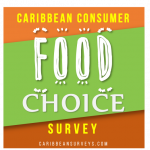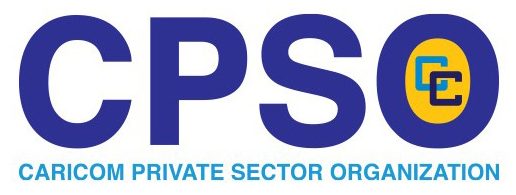CARICOM FOOD CHOICE SURVEY

February 2022
Help us understand the preferences, priorities, and concerns of CARICOM consumers by completing this simple survey.
We invite you to participate in this Consumer Food Choice Survey, which seeks to evaluate consumer food choices within the CARICOM region. This Survey was created under the Project: “CARICOM Impact Assessment Study: Determination of an Appropriate Front of Packaging Nutrition Labelling (FoPNL) Scheme and the Identification of a Harmonized Approach for Implementation”, to examine consumer food choices, and to arrive at an understanding of the aspects which influence food purchasing behaviour.
The CARICOM Consumer Food Choice Survey is being executed under the aegis of the CARICOM Secretariat, CARICOM Agricultural Health and Food Safety Agency (CAHFSA) and the CARICOM Private Sector Organization (CPSO).
If you agree to participate in this study, you will be asked to complete a three-part online questionnaire. Completion of the entire questionnaire will require a time commitment of approximately 15 minutes.
Your responses are completely anonymous. No personal identifying information or IP addresses will be collected. There are no known risks to taking part in this study. Your participation is completely voluntary. You can withdraw from the study at any time without any consequences of any kind.
More Information
Context For the Survey
Non-Communicable Diseases (NCDs)i are documented as the leading cause of death and disability within the Caribbean. The prevalence of these diseases poses a severe threat to the health of our people, and consequently, to the social and economic development of our Region.
In 2007, CARICOM Heads of Governments signed a declaration on “Uniting to Stop the Epidemic of the NCDs”, in which all Member States committed to several measures aimed at reducing the incidence level of NCDsii. These measures include the implementation of an appropriate supplementary nutritional labelling standard to alert consumers to the presence of Nutrients of Concern (NOC)iii above the recommended threshold in packaged foods.
To better support the implementation of measures to reduce the incidence level of NCDs within the Region, the Council for Trade and Economic Development (COTED) approvediv the conduct of the “CARICOM Impact Assessment Study: Determination of an Appropriate Front of Packaging Nutrition Labelling (FOPNL) Scheme and the Identification of a Harmonized Approach for Implementation”.
A key outcome for this Study is to assess the impact of different FoPNL schemes on consumers’ ability to choose healthier options within the same food categories, and across different food categories.
About Front of Package Nutrition Labelling
The CODEX Alimentarius Commissionv, recognizes Front of Package Nutritional Labelling (FOPNL), as a form of supplementary nutrition information, and a tool used to facilitate the consumer’s understanding of the nutritional value of foodvi.
FOPNL should present information in a way that is easy to understand and use by consumers in the country or region of implementation. The format of the FOPNL should be supported by scientifically valid consumer research.
FOPNL presents information in a way that is easy to understand and use by consumers in the country or region of implementation. It helps consumers make appropriate comparisons between foods within the same food categories, as well as across different food categories. FOPNL is developed in consultation with various parties, including governments, the private sector, consumers, academia, and public health associations.
References
- NCDs include cardiovascular diseases, hypertension, diabetes, cancers, chronic lower respiratory diseases, sickle cell disease, mental illness, and injuries. They are mainly as a result of a combination of genetic, environmental, behavioural, and metabolic risk factors, such as physical inactivity, unhealthy diet, harmful use of alcohol, air pollution, stress, and overweight/obesity – Caribbean Public Health Agency, CARPHA
- Declaration of Port-of-Spain: Uniting to Stop the Epidemic of Chronic NCDs, s. 9 – 15 September 2007.
- Fats, saturated fats, trans fats, sugars, and sodium - PAHO Nutritional Profile Model
- This decision was taken at the Fifty-Second Regular Ministerial Meeting of (COTED) held on 1-2 June 2021
- CODEX a joint Commission between Food and Agriculture Organization (FAO) and the World Health Organization (WHO) is the International Standards body responsible for setting International Standards for food and related processes.
- Report of the Forty-sixth Session of the CODEX Committee on Food Labelling



